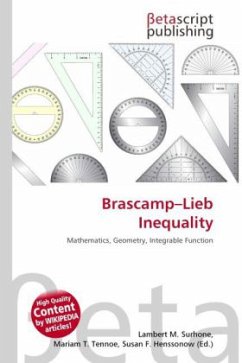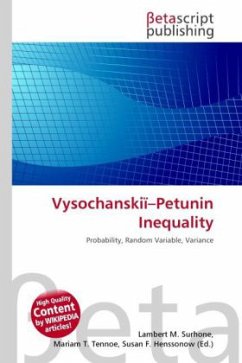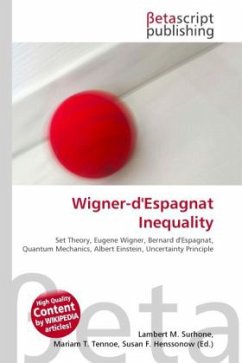
Wirtinger's Inequality for Functions
Versandkostenfrei!
Versandfertig in 6-10 Tagen
23,99 €
inkl. MwSt.

PAYBACK Punkte
12 °P sammeln!
High Quality Content by WIKIPEDIA articles! The proof of the two versions are similar. Here is a proof of the first version of the inequality. Since Dirichlet's conditions are met, we can write f(x)=frac{1}{2}a_0+sum_{nge 1}left(a_nfrac{sin nx}{sqrt{pi}}+b_nfrac{cos nx}{sqrt{pi}}right), and moreover a0 = 0 since the integral of f vanishes. By Parseval's identity,int_0^{2pi}f^2(x)dx=sum_{n=1}^infty(a_n^2+b_n^2) and int_0^{2pi}f'^2(x) , dx = sum_{n=1}^infty n^2(a_n^2+b_n^2) and since the summands are all 0, we get the desired inequality, with equality if and only if an = bn = 0 for all n 2.












